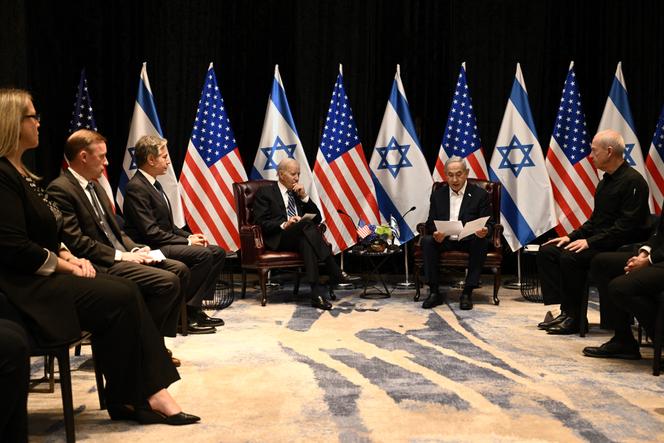


Two tragedies have intertwined. The first is that of Israel, compelled to disable Hamas militarily because the October 7 attack on its soil shattered its concept of national security. The second is that of the Gazan civilians, whose torment has reached unprecedented proportions under the Israeli bombings and blockade.
The Biden administration has demonstrated the difficulty of taking both aspects of this tragedy into consideration. It has committed its credibility and its resources to supporting the Jewish state, whose government is dominated by firebrand xenophobic nationalists, and whose army has opened itself up to accusations of war crimes in Gaza.
For US President Joe Biden, this support is not a matter of partisan rationale, but of necessary moral clarity against the evil embodied by Hamas's terrorism. However, the more the Israeli army's war crimes seem to accumulate, the more the horror suffered by the Jewish state a month ago seems to fade in public opinion.
"If you want to solve the problem, then you have to take in the whole truth," said former president Barack Obama, in an excerpt from an upcoming podcast episode. "And then you have to admit that nobody's hands are clean, that all of us are complicit to some degree." These cold, analytical words offer an unprecedented contrast with his former vice-president's stance.
After the shock of the October 7 attack, the Biden administration gave Israel its full political and military support. Secretary of State Antony Blinken, and then Biden himself, visited the scene. Weapons deliveries were urgently ordered. A spectacular deployment of naval air forces in the eastern Mediterranean served as a deterrent to Hezbollah in Lebanon and Iran. Bilateral exchanges of intelligence and military analysis have intensified. This support is the US-Israel alliance as seen through evidence. It is the realization of the United States' bipartisan commitment, made over several decades, to stand by Israel should its security be threatened.
Yet perceptions of this commitment have backfired on the White House and are isolating it. The way it casts doubt on the official figures from the Ministry of Health in Gaza, though it is under the control of Hamas; the way it pins full responsibility for the deaths on the Islamist movement, because its fighters are hiding among civilians; the way it does not publicly question the scale and the relevance of Israeli bombing: All of these have created a rift with opinions in Arab countries, but also with a large part of the Democratic electorate in the United States. The protest organized on November 4 in Washington, bringing together tens of thousands of people in support of the Palestinian people, illustrated this phenomenon.
You have 55% of this article left to read. The rest is for subscribers only.
